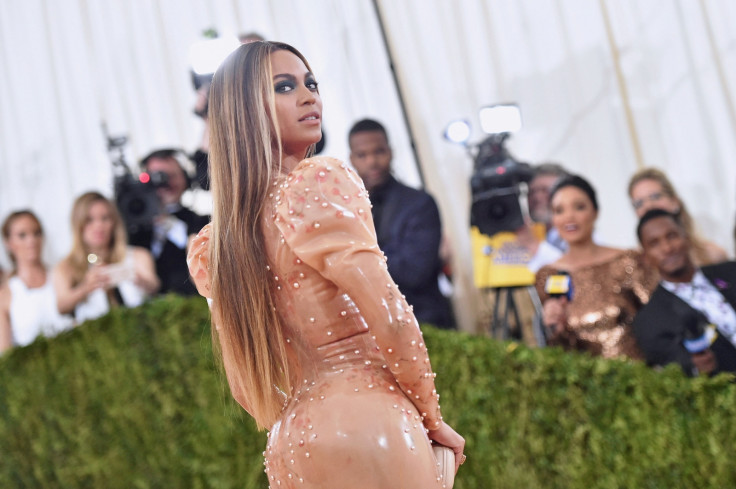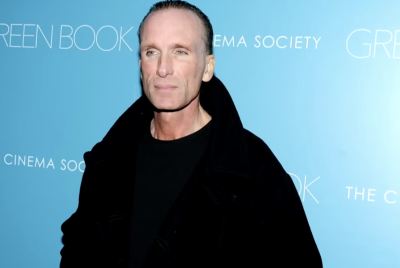Praise Beyonce and Emma Watson for feminism but don't ignore the fact they're elite millionaires

The term 'Beyonce sweatshop' sounds like an undiscovered album track, set in a dingy basement with sticky back up dancers working and twerking in a 'Slave 4 u'-esque mass orgy. But when you search it, instead of a clammy, glammy music video you come across some serious allegations.
Her much-hyped sportswear label Ivy Park has allegedly been produced by Sri Lankan sweatshop labourers, earning £4.30 a day. That sum would buy workers one pair of the socks they're forfeiting their fingers for. An Ivy Park spokesman swiftly dismissed the claims as 'unfounded' but if anything positive can come from the whole bleak debacle, it may be the realisation that maybe it's time to stop centering celebrities in online activism.
Don't get me wrong – the rich and famous are hugely useful for fostering debate. Like a sort of real life, real-time fable, they often help illustrate the world's dynamics. Jennifer Lawrence is a useful poster child for pay gap critique. Oprah Winfrey proves that no amount of money can buy you out of racial profiling. They get us talking – now more so than ever – about things that matter. But the things they get us talking about matter far more than the celebrities themselves. Individually, they should not be integral to our movements because, well, they're celebrities.
Celebs are no longer simply who we decorate our walls with – their faces adorn the Facebook headers of university political societies. Beyonce is not just the reigning Monarch of the BeyHive but somehow online feminism too, so any critique of her politics is received as an attack on our ideology.
To cope, we have developed a bad habit of ascribing agency to some celebs regarding actions we like, and removing it when they do something we don't. Ensuring the purity of our leaders, we acknowledge any instance of activism as all their own doing, devoid of any marketing or puppet string pulling. But they suddenly become mere pawns of the 'system' when found colluding with capitalism.
Read more: In defence of Beyonce's 'sweatshops'
The sway that allows celebs to promote change in certain areas however, does not entirely vanish in another. The power in Beyonce's Superbowl performance lay in the fact it was a display of her ability to utilise just that; power. So I won't conveniently assume the same autonomy that allowed Beyonce to put on one of her most politically charged performances to date on one of the world's biggest platforms, couldn't have been exercised to ensure that Topshop didn't produce her line in a sweatshop factory.
Similarly, I don't buy that Emma Watson, who has taken a decisive, deliberate stance on feminism and ethics, couldn't have applied the same sense of purpose in avoiding tax. Beyonce and Emma have actively decided to use their platforms to fight against white and male supremacy – but when it comes to economic oppression (which is usually tied in with the other two), they're entirely complicit, like most multi-millionaires. And that shouldn't come as a surprise to anyone.
Whether a millionaire is a minority, new money, a woman, or all of the above, they are still part of the world's elite.
Whether a millionaire is a minority, new money, a woman, or all of the above, they are still part of the world's elite. Beyonce is black and a woman. She is also worth $450m, and this is something that shapes her as much as the first two attributes, but is the one intersection her defenders like to ignore. If our feminism must be intersectional or be bull****, why the continued ignoring of celebrities' class privilege?
There is no doubt about it – society relishes in any and every opportunity to take down black women. But we can acknowledge that Beyonce will no doubt face harsher criticism because of this and also acknowledge some might think that a woman of colour partaking in the exploitation of other women of colour for the sake of a brand being peddled as 'empowering' to women, smacks. Instead, those unwilling to criticise posit her as a clueless victim of an economic system she actually appears quite happy to uphold.
We take pop cultural icons and make them ideological frontmen in a cack-handed, back-handed attempt to thumb our nose at elitism. Instead, we end up giving meaningful class analysis the finger.
"Talking seriously about celebrity is seen as a rebellion against people who dismiss pop culture as trivial." Abi Wilkinson writes. "Though there is some value to this idea, anti-elitism is nothing more than empty posturing if it's at the expense of addressing issues that have a material impact on less affluent women's lives."
Especially when their own actions have a material impact on less affluent women's lives, in the way sweatshops and tax avoidance do. To accompany colour blindness, we're developing a tone deafness regarding class that sees people non-ironically refer to 'underdog' Kim Kardashian's riches to riches story as a rags to riches one.
Kim's brand of reality TV based, selfie saturated celebrity may be considered 'low culture' but don't let the excessive emoji use and word 'fleek' fool you – she is the daughter of OJ Simpson's attorney from whom she inherited part of a $100m estate in trust. Yet the real 'elitists' are apparently those who refuse to acknowledge her as the second coming of Simone de Beauvoir and cynically think her naked selfies may have more to do with monetary gain than grassroots activism. The true progressive will actively applaud the rich get richer, apparently.
What would really be shocking is if they did anything that saw them genuinely jeopardise their fortunes for the sake of socio-economic justice.
Similar logic saw the spreading of a Twitter thread demanding more representation of 'POC Royalty', rather than the abolition of elitist, often deeply colonially complicit monarchies.
Rihanna, an incidental intersectional icon, once called Rachel Dolezal a 'hero'. She has outright denied her songs described as 'feminist anthems' have anything to do with women's empowerment. But I never did come to Rihanna for a critical analysis of third wave feminism or institutional racism. I come to her for songs about smoking spliffs and swerving the undeserving in my DMs.
I love Beyonce and continue to applaud her for her efforts within anti-racism. But I know whilst she carries hot sauce in her bag, she's also more than happy to pour champers worth hundreds down the plughole of a hot tub, in a display of such excess it could make the Queen cringe.
The recent revelations are in no way at odds with Watson and Beyoncé's position societally and politically. They are entertainers first and vaguely political mouthpieces second – what would really be shocking is if they did anything that saw them genuinely jeopardise their fortunes for the sake of socio-economic justice. For that reason they, like majority of the rich and famous, are better off as 'problematic faves' as opposed to political figureheads.
© Copyright IBTimes 2025. All rights reserved.






















